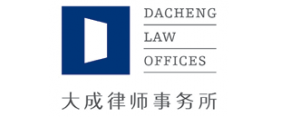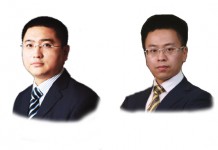An enterprise name is an important mark distinguishing one enterprise from another, and has the attributes of a personal right, property right and intellectual property right. While bringing the enterprise tremendous profits, an enterprise name can also assist it in establishing its image, broadening its influence and enhancing its competitiveness.

Wang Liangzhen
北京大成律师事务所
高级合伙人
Senior Partner
Dacheng Law Offices
However, today enterprise name infringement is becoming more and more varied. Enterprise name infringement can cause market disorder, and the pallor of legal provisions is the soil in which enterprise name infringement thrives. This column will analyse the shortcomings in the current regulations when relevant disputes arise, and set out recommendations for improvement.
Pursuant to the laws of China, an enterprise name is composed of four parts: the administrative division; trade name; industry feature; and organisational form. The trade name portion is the most original and distinctive, for example in the name “Sichuan Changhong Appliance Co Ltd”, Sichuan is the administrative division, Changhong is the trade name, Appliance is the industry feature and Co Ltd is the organisational form.
Greater focus on after the fact remedies
Pursuant to article 58 of the Trademark Law, where another’s registered trademark or unregistered well known trademark is used as the trade name in an enterprise name, misleading the public and constituting unfair competition, the matter is to be handled in accordance with the Law on Unfair Competition.
The Opinions on Resolving Several Issues Concerning Trademarks and Enterprise Names specify that registering words identical or similar to another’s registered trademark as the trade name portion of an enterprise name, thereby causing confusion among the relevant public between the trademark registrant and enterprise owner, and constituting unfair competition, is to be prohibited in accordance with the law. In handling such confusion, the principles of maintaining fair competition and protecting the interests of lawful prior rights holders are to be applied.

明路芳
Ming Lufang
北京大成律师事务所
律师助理
Legal Assistant
Dacheng Law Offices
From the above it can be seen that the application of the law in conflicts between company name rights and trademark rights in current Chinese law is relatively clear cut, but in practice things are not entirely satisfactory. When an enterprise name infringes a trademark, the trademark rights holder has the right to file a written complaint with the administration for industry and commerce (AIC) and provide relevant exhibits evidencing the infringement of its rights and interests. And when an authority discovers that an enterprise name infringes a trademark, it has the right to revoke the registration of the enterprise name, the registration of which has been approved. However, in such a circumstance, the AIC itself faces the risk that the enterprise that had its name revoked will institute an administrative action against it.
Accordingly, even though current laws and regulations permit a materially interested party to file with the AIC a complaint opposing a certain enterprise name, or a petition demanding the modification or revocation of such name, the AIC is generally not willing to bear the risk of facing an administrative action, and will not put much effort into handling the case, and constantly prevaricate. In practice, the result of its handling of the case is usually telling the concerned party that it cannot resolve it, and to institute a legal action with the court.
Recommendations for improvement
Strengthen protection of enterprise trade names. At the core of an enterprise name right is the trade name. The protection of enterprise names by the laws of China should not stop solely at the level of protection of the “entirety”, and infringement of the trade name should be deemed infringement of enterprise name rights. Second, the scope of protection of enterprises’ trade names should be expanded, with infringement of enterprise trade name rights by such means as expansion, contraction, and use of homonyms or characters of similar shape being regulated. Finally, the protection of trade names should go beyond geographical and industry boundaries, truly cracking down on free riding in the form of “same name, different region and same name, different industry”.
Establishment of a system of mandatory revocation or modification of infringing names. When an enterprise that has been victimised files a complaint with the AIC and its grounds are legitimate and sufficient, but the AIC prevaricates and ignores the matter, the enterprise should be able to institute a legal action for revocation or modification with the people’s court, requesting that the people’s court order the AIC to revoke or modify the infringer’s enterprise name, the registration of which has been approved.
Establishment of a procedure for opposition to enterprise names that have been announced. Only carrying out after the fact handling of enterprise name infringement is far from sufficient. To avoid the duplication and confusion of company names, and the occurrence of future disputes, efforts should be made to nip the problem in the bud through prevention.
Although the Implementing Measures for the Administration of the Registration of Enterprise Names specify that application for name pre-approval be carried out when establishing a company, there is no detailed operational procedure. One can refer to the procedure for opposition to the gazetting of a preliminary approval for the registration of a trademark of the Trademark Law where, when an enterprise applies for name pre-approval, the competent registration authority would announce the proposed name in the media for a period of, let’s say, one month.
During the announcement period, a materially interested party could submit a written opposition to the competent registration authority, which would notify the respondent within three days after receipt of the written notice from such party, requesting that the respondent provide a written explanation within 10 days. When necessary, a face-to-face statement of opinions between the parties could be arranged or, subject to the application of either party, a hearing procedure could be triggered.
If, after its examination, the competent registration authority deems the opposition tenable, it would order the respondent to submit a new name approval application. If it deems the opposition untenable, it would dismiss the opposition of the materially interested party and inform such party that it can institute a legal action for revocation or modification with the people’s court.
北京市朝阳区东大桥路9号侨福芳草地D座7层
邮编:100020
7/F, Building D, 9 Dongdaqiao Road
Chaoyang District, Beijing 100020, China
电话 Tel: +86 10 5813 7799
传真 Fax: +86 10 5813 7788
电子信箱 E-mail:
liangzhen.wang@dachenglaw.com
www.dachenglaw.com






















